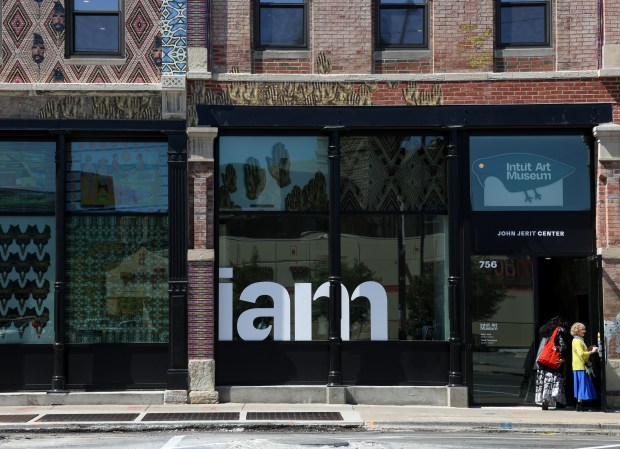There’s been a lot of talk of late at City Hall about housing in Chicago — that is, how we need more of it. A lot more. And fast.
So it’s curious that Ald. Walter Burnett, chair of the City Council’s Zoning Committee and vice mayor, has been sitting on a zoning application for a massive apartment building planned for a vacant 7-acre lot in River West for almost a year.
The $1.1 billion project seems to be made exactly to order for Mayor Brandon Johnson. Canadian developer Onni Group, which owns multiple commercial and residential towers in Chicago, has proposed three buildings on the site next to what used to be the Chicago Tribune’s Freedom Center and is soon supposed to be Chicago’s long-awaited casino. The project would create more than 2,450 new units, including 490 affordable apartments.
Onni obtained approval from the Chicago Plan Commission last June, teeing up the project for Burnett’s Zoning Committee back then. Since then? Crickets.
What’s apparently behind the delay, according to recent reporting from Crain’s Chicago Business, is that one of Chicago’s most politically powerful unions, Service Employees International Union Local 1, views the zoning approval as leverage to force Onni to make it easier for SEIU to unionize the staff at not just this new project but all of Onni’s residential buildings in Chicago.
The developer has refused to budge and recently moved to bypass Burnett’s committee, which an applicant is allowed to do under zoning rules meant to overcome the opposition of a single alderman to proposals for new affordable housing. Such NIMBY-based opposition — enabled by Chicago’s tradition of aldermanic prerogative, which has given aldermen effective veto power over developments in their wards — is part of the reason Chicago is suffering such a housing shortage.
But Burnett’s blockage isn’t a NIMBY story at all. It’s a new chapter in a different age-old tale in this town — of unions using their influence over local government to boost their membership rolls.
Onni’s audacious move sets up a City Council vote this summer that potentially would force aldermen to choose between risking the displeasure of SEIU, which contributes generously to local campaigns and helps provide organizational muscle as well, and furthering what virtually all these City Council members espouse — building more affordable places to live.
Of course, there is nothing preventing SEIU from attempting to organize workers at Onni’s existing Chicago apartment buildings, which include the three high-rise Old Town Park buildings in Old Town and the 41-story 369 Grand in River North, both high-end projects. What SEIU wants the City Council to do is force Onni into a “labor peace” agreement in which it wouldn’t oppose SEIU’s organizing efforts and would provide contact information for employees to help the union get the job done.
Onni told Crain’s only that it was continuing to “work with the city and all parties.”
We know little else about why Onni opposes union organization of its apartment-building staff in Chicago. The family-owned company is a very large real estate concern, with multiple buildings in Southern California, Vancouver, Phoenix, Toronto and Seattle, in addition to Chicago.
It’s known for having never sold a project it developed since its founding in the late 1950s, according to CoStar.
What we do know is that it’s wrong to attempt to use what should be a relatively routine, uncontroversial action in the City Council to extort a private-sector employer in this way. Chicago may be a “union town,” as many in the City Council would aver, but it should be open to business to any company willing to invest here, whether it’s a union shop or not.
Given its moribund local economy and declining population, Chicago is in no position right now to attempt to throw its weight around with a large-scale player that can and does invest in many other markets.
This is an opportunity for Mayor Johnson to put his money where his mouth is. So far, the mayor has been mum on whether this project should go forward even if SEIU (a major contributor to Johnson’s 2023 campaign) is in opposition. In a wide-ranging meeting we had Thursday with Johnson’s housing commissioner, Lissette Castañeda, she declined to take a side.
Johnson ought to tell his vice mayor, Ald. Burnett, to move this important development forward. If Burnett refuses, aldermen should set aside their political loyalties and do what’s best for Chicago once it comes to the full council for a vote.
Submit a letter, of no more than 400 words, to the editor here or email letters@chicagotribune.com.




